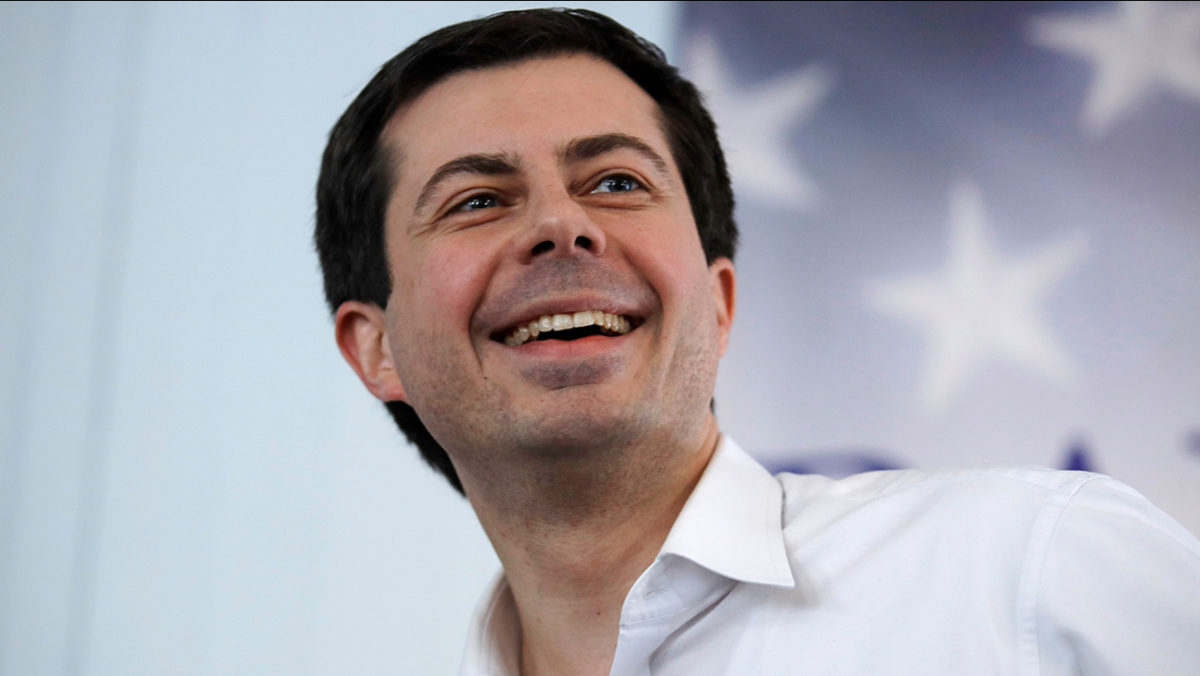Pete Buttigieg left the presidential race because he didn’t want to be humiliated on Super Tuesday. He had been roundly thrashed last week by brave workers risking their livelihood after his hollow platitudes to those fighting for fifteen dollars an hour didn’t land and he was received by unremitting ridicule. Moreover, he didn’t have the money to win. He had $6.6 million at the beginning of February, just a half million less than Biden did. And then South Carolina happened. Tom Steyer, who took the state’s motto “While I Breath I Hope” quite literally by going all in, had bested Buttigieg by three percentage points. Then Steyer dropped out. And the polls showed Buttigieg not doing all that well. Behind the unpopular Bloomberg in Utah. Just 8% in a February 19th Washington Post/ABC News poll. Barely 10% in a CBS News/YouGov poll released on February 23rd. He had canceled his pivotal Florida trip, claiming a cold, much like Frank Sinatra. But he didn’t have Sinatra’s popularity or his power. He didn’t have young voters. He didn’t have African-Americans. He couldn’t win, even though he had declared victory in Iowa before the results were in and carried himself in the final weeks of his campaign much like Little Lord Fauntleroy walking the streets of New York City with an aristocratic air.
But now he’s out. And what this means is that the Democratic race has come down to Bernie Sanders vs. Joe Biden. This, however, is an election in which Sanders has the clear advantage, not Biden. Conventional wisdom might suggest that voters cleaving to Buttigieg would put their faith in a dependable mainstream moderate with brand name recognition like Biden. But the donations and the polling figures paint a different picture. Sanders raised $46.5 million in February alone, easily dwarfing the Biden war chest. A Morning Consult poll released on February 27, 2020 shows Bernie ahead as a second choice among Buttigieg voters by 21%. It’s admittedly a narrow lead over Biden and Warren, who did merit 19% each in this poll. But it nevertheless speaks to the significantly underestimated way in which Bernie has built a vast coalition.
It’s possible that the flailing campaigns of Amy Klobuchar and Elizabeth Warren may be able to take some of the wind out of Bernie’s sails. Klobuchar, who sustained a level of remarkably controlled rage against Pete in the last two debates, will no doubt be galvanized by this news. But it’s doubtful that she will crack much more than 6% in most of the Super Tuesday races. Warren has a slightly better chance, but her support has plummeted in the most recent primaries. 9.2% in New Hampshire. 9.7% in Nevada. If we look to Nevada as a litmus test, the 14.3% that Buttigieg won in that state would likely be split among Bernie, Biden, and Warren. And if that’s indicative of the national clime, that’s simply not enough of a share for her to roll past Biden, who will likely see stronger numbers in future races after his win in South Carolina.
Biden represents the likely second place candidate. But he’s going to need to mobilize a lot of people to donate money in the next few weeks. And he’s going to need to have a very strong showing in the fourteen states up for grabs just two days from now.
All this is very good news for Bernie. But his campaign should not grow complacent. As I argued last night, he’s going to need someone like Stacey Abrams in his corner. He’s going to need to demonstrate to black voters and older voters that he’s worked out the numbers and that he stands with a coalition that is inclusive of centrists and the South. His present strategy of pointing out that universal healthcare and free college tuition are not radical ideas is a start. But this is a place where Biden is likely to attack him on.
Buttigieg’s exit is definitely Bernie’s gain. But it’s not the end of this grueling race. Not by a long shot.
